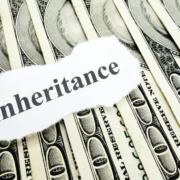A properly drafted, enforceable prenuptial agreement may greatly reduce, if not prevent, disputes concerning the equitable distribution of marital property if a married couple divorces. Making such an agreement before you marry is not a sign your marriage is doomed. It only means you are smart and preparing for a life-changing event that may or may not happen, especially if one or both of you own a company.
If you own a business, do not have a prenup, and the business grows, your spouse would be entitled to half of that growth upon your divorce. You could be forced to give up other assets, pay your spouse over time, or, in the worst-case scenario, close the business. However, a well-crafted prenup can protect you and your business.
What Is Equitable Distribution?
Part of the divorce process is the equitable division of marital property. The couple’s assets and debts are organized, and their values are estimated. The parties must decide which are separate or personal and belong to the individual and which are marital (normally property acquired during the marriage) and belong to the couple, or a court will do it for them.
Marital property is subject to fair or equitable division during a divorce. The increased value of separate property could also be divided depending on the circumstances. The parties can agree to this, or it will be resolved at a trial.
What Is a Prenuptial Agreement?
What is a prenup? A prenuptial or antenuptial agreement is a contract entered into before marriage. The parties can agree on which assets and debts are personal and which are marital and identify them accordingly. The agreement should include how marital assets and debts will be divided, possibly preventing disputes during a potential divorce.
Why Is a Prenuptial Agreement a Good Idea?
Just creating the document can be beneficial. The two of you need to think about your financial lives and assets and your duties and rights during and after your marriage. These agreements may be particularly helpful if one or both parties have significant assets before the marriage, a well-paying job, or a business. One or both parties may feel more at ease if they know what will happen financially if the marriage ends in divorce, and the outcome will be fair and mutually agreed upon.
If one or both spouses start a business during the marriage and it is not mentioned in the agreement, who ends up owning what can be determined by a contract made during the marriage (a postnuptial agreement), by amending the prenup, through negotiations during a divorce, or at a trial. The issue can also be part of a business ownership agreement covering what will happen if you divorce.
What Effect Does Business Ownership Have on Equitable Distribution Without a Prenuptial Agreement?
Consider what would happen if a marriage ends in divorce and one or both spouses own a business but there is no ownership, prenuptial, or postnuptial agreement. One spouse could argue it would be fair and equitable that they should get part ownership (if they do not already have it) and make the case for how much that should be (whether they own part or not.) The outcome would depend on how actively the spouse aided the business and what sacrifices they made so it could be a success, including contributing personal funds, working for the company, or sacrificing their career to help it.
The fate of family-owned businesses can be a highly charged divorce issue. A prenuptial or other type of agreement would spell out how this would be handled and should prevent these types of conflicts from erupting.
Karen Ann Ulmer, P.C., Can Help You With a Prenuptial Agreement
Contact us if you have questions about a prenuptial agreement, want one created, or think you are being forced to sign one. For a confidential discussion with a Doylestown premarital agreements attorney at Karen Ann Ulmer, P.C., call (215) 752-6200 or email us. We can meet in our Doylestown or Langhorne office or speak with you by phone.







